Bri Clark's Blog, page 3
June 12, 2013
What is Social Media Marketing Anyway Yo?
 In order to understand the ACT method, defined as attract, convert, and transform one has to have an understanding of online marketing. Online marketing differs greatly than traditional marketing used over the last few hundred years. With the invention of the internet, the marketing industry has been presented with more challenges and more opportunities at the fastest rate ever in the industry.
In order to understand the ACT method, defined as attract, convert, and transform one has to have an understanding of online marketing. Online marketing differs greatly than traditional marketing used over the last few hundred years. With the invention of the internet, the marketing industry has been presented with more challenges and more opportunities at the fastest rate ever in the industry.Unlike in traditional advertising online marketing is a two-way conversation. Take for example a commercial, in this the company sends a message that is simply viewed and gets the product or service seen. In contrast, a blog post with a review of a product that is shared via social media created multiple outlets for conversations. Such as in, the comments section of the blog or in response on the social media threads.
Social media marketing is not as fast at getting products, services, and brands in front of people as it's thought to be. Social media marketing campaigns that are successful are those with long terms goals and quarterly reviews that understand they are cultivating relationship. It's not about a one way conversation like traditional marketing. It's a two way conversation. How do you feel when no one listens to you?
Bri Clark
Social Ghoster Marketing Strategist, Author, Speaker, Social Media/ Platform Consultant
(208)761-0319 belleconsult.com

 Facebook
Facebook
 Twitter
Twitter
 LinkedIn
LinkedIn
 Google Plus
Google Plus
 YouTube
YouTube

Published on June 12, 2013 06:14
May 22, 2013
What Season Am I?
I'm pleased as punch to get my own personal color analysis by Sue McCartney of Your Color. She is an image consultant with over 20 years experience and a client list to prove it. But what I'm even more excited about is we get to have a contest too.
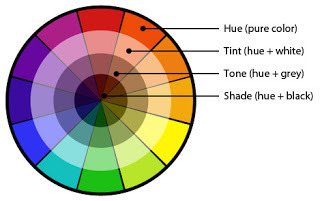
All you have to do is guess what season I am correctly and leave your answer in the comments.
First one who does wins a lipstick pen and a new universal lipstick crayon. Universal means it looks FABULOUS ON EVERYONE!
GO AHEAD! GUESS GUESS GUESS!! SPRING, SUMMER, AUTUMN OR SUMMER.
You can find more out bout Sue here http://yourcolor.us.
Bri Clark
Social Ghoster Marketing Strategist, Author, Speaker, Social Media/ Platform Consultant
(208)761-0319 belleconsult.com

 Facebook
Facebook
 Twitter
Twitter
 LinkedIn
LinkedIn
 Google Plus
Google Plus
 YouTube
YouTube
Sass is Class Blog So what’s it take to succeed as an indie author?


All you have to do is guess what season I am correctly and leave your answer in the comments.
First one who does wins a lipstick pen and a new universal lipstick crayon. Universal means it looks FABULOUS ON EVERYONE!
GO AHEAD! GUESS GUESS GUESS!! SPRING, SUMMER, AUTUMN OR SUMMER.
You can find more out bout Sue here http://yourcolor.us.
Bri Clark
Social Ghoster Marketing Strategist, Author, Speaker, Social Media/ Platform Consultant
(208)761-0319 belleconsult.com

 Facebook
Facebook
 Twitter
Twitter
 LinkedIn
LinkedIn
 Google Plus
Google Plus
 YouTube
YouTubeSass is Class Blog So what’s it take to succeed as an indie author?


Published on May 22, 2013 17:11
May 5, 2013
So what’s it take to succeed as an indie author?
So what’s it take to succeed as an indie author?
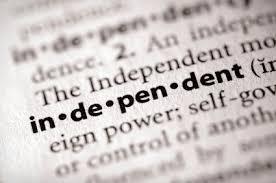
[note: this article first appeared as part of the How to be a Good Writer series on the C.P. White Media Blog.]
Sales. God help us. My good friend Aaron Patterson once posted up a comment on Facebook about this: what’s it take to sell your book (basically)? I mean, some of us are selling and some of are not, and it’s not as if it’s cut and dried that the nonsellers are shitty writers. Pardon me, but come on. And there’s plenty of hot-selling total crapola out there. So it’s not simple.
Adding to the complexity is the free market, which I adore. The rise of the eBook has been confounding the Big Six publishers today in the same way that Napster and iTunes changed just about everything in regard to the music business a while back. Well…when I say everything…the point is that Bob Dylan was right about how times change, but only insofar as they don’t really, which was King Solomon’s counterbalancing bit of sagacity.
Aaron and I secretly agree that for the business-minded author, the entrepreneurial, the indie author…pssst: there’s really no need for a publisher. The dirty little secret is that the Big Six will expect you to work just as hard for them as if you were going it alone, and in exchange for that gigantic favor they will be taking about 85% of the pot, thanks. At least. I personally don’t want to shove against that wall. Someone else can shove it, if you get my meaning.
The facts, therefore, have been distilled down to these: editing, cover design, publishing, and marketing strategy. Those are the things that matter most, and the things that any competent publisher (even if he’s just a one-man operation, i.e. an indie writer) will spend the bucks on. Let’s have a look at ‘em one at a time.
Editing is the process, often painful, whereby you as the author pay large amounts of cash so that your work can be pulled apart by someone wiser than thou. It’s also so that you can be emotionally abused about it. Okay, I’m (mostly) kidding. A great editor will do that so nicely that you’ll catch yourself saying, “Thank you, sir, may I have another.” Remember that editing isn’t just spelling and grammar; it’s content, the creative bits, pacing, character development, plot, and so on. It’s my personal opinion that the best editors are a one-stop shop. Spelling and grammar are fixed pretty easily, either by Word itself or by the conscientious author. Anyway, editors who only do spelling and grammar are called proofreaders, not editors. And if you’d like to get in touch with me aboutediting your work, please do.
Okay, covers. Cover design is something at which I suck. Okay, that’s not fair, but let’s say that a guy struggles when he lacks tools and experience sometimes. Just being honest. So few authors are double-edged swords; able to produce literary and graphic excellence. I once posted on Facebook a cover I did for my novella The Marsburg Diary, alongside another cover that was professionally done, and asked people to vote. It was something on the order of 20:1 against mine. Not to say that I can’t learn eventually, but for now, I’ll be leaving it to the professionals. I’d counsel you to do the same. It’s almost impossible to spend too much on a good cover. Don’t be afraid to “focus group” it with your friends, either.
Publishing. Right. That just means that you’re taking your work public. That’s all. And right now one of the best ways to do that is to convert your Word .docx to Amazon’s eBook format (mobi) and everyone else’s (epub). And guess what. Once you pay for the file conversion, there’s no more overhead, really, and Amazon pays out 70% royalties on eBooks, provided you’re within a certain price envelope. Plus, there’s always the possibility that you could learn how to do conversions yourself. I’ll be covering that next week, so stay tuned. I will warn you right now, if you want to publish to the iBookstore you either need to own a Mac or know someone who will let you use one. Apple. Psh. Whatever. You can easily reach the i-Masses through Amazon’s Kindle store, though, because there’s a free Kindle app for every device under the sun except the Nook. Apple. Psh again.
But what of marketing strategy? What about print? What about eBooks? This is such a loaded subject that I think it might be best to broach it in a separate blog. And I will. Soon. There are so many opinions on this kind of stuff, and I have mine, for sure. Mostly, if we’re keeping it simple, you’ve got to know that all the work you’ve done before this point will dry up and fall to the earth like something nasty on the underside of a cafe table if you’ve not got a marketing plan, and a good one. Also bear in mind that, hello, technology, love it or hate it, is a very important part of how well you’ll do as far as sales are concerned. It’s my opinion, and Aaron will back me up on this, that social media is still a large part of the best marketing plan for an eBook, and rightly so. Until the sea changes again, Facebook and Twitter are necessary evils at worst, and powerful tools at best.
Look, folks, the marketplace is changing everyday. It’s been that way ever since uncle Abu was hawking fish in the square in Mesopotamia and keeping the accounting ledger in Cuneiform. I love to write. In order to keep doing that, I have to sell the books I produce. While it’s not rocket science, there are certain requisites. I hope this longish post helped to illustrate some of those, and also that you’ll be applying some of these tips to your own journey as a professional. Look alive; it’s a wonderful time to be a creator and literary artist.
 About Chris White:
About Chris White:
You know what they say—that behind every great man is an unstoppable rebel force—and it’s true. Like Moriarty was to Holmes, C.P. White is the reversed polarity doppelganger behind it all. Author C.P. White blogs about weirdness on the C.P. White Media Blog and spins dark tales, psychological thrillers that you’ll want to read with the lights on. Author Chris White works in the front office writing romantic YA paranormal fiction with Aaron Patterson, collaborates with illustrator Joey Zavaleta on the Great Jammy Adventure children’s books, and even serves as editor to award-winning authors. Learn more at www.cpwhitemedia.com.

[note: this article first appeared as part of the How to be a Good Writer series on the C.P. White Media Blog.]
Sales. God help us. My good friend Aaron Patterson once posted up a comment on Facebook about this: what’s it take to sell your book (basically)? I mean, some of us are selling and some of are not, and it’s not as if it’s cut and dried that the nonsellers are shitty writers. Pardon me, but come on. And there’s plenty of hot-selling total crapola out there. So it’s not simple.
Adding to the complexity is the free market, which I adore. The rise of the eBook has been confounding the Big Six publishers today in the same way that Napster and iTunes changed just about everything in regard to the music business a while back. Well…when I say everything…the point is that Bob Dylan was right about how times change, but only insofar as they don’t really, which was King Solomon’s counterbalancing bit of sagacity.
Aaron and I secretly agree that for the business-minded author, the entrepreneurial, the indie author…pssst: there’s really no need for a publisher. The dirty little secret is that the Big Six will expect you to work just as hard for them as if you were going it alone, and in exchange for that gigantic favor they will be taking about 85% of the pot, thanks. At least. I personally don’t want to shove against that wall. Someone else can shove it, if you get my meaning.
The facts, therefore, have been distilled down to these: editing, cover design, publishing, and marketing strategy. Those are the things that matter most, and the things that any competent publisher (even if he’s just a one-man operation, i.e. an indie writer) will spend the bucks on. Let’s have a look at ‘em one at a time.
Editing is the process, often painful, whereby you as the author pay large amounts of cash so that your work can be pulled apart by someone wiser than thou. It’s also so that you can be emotionally abused about it. Okay, I’m (mostly) kidding. A great editor will do that so nicely that you’ll catch yourself saying, “Thank you, sir, may I have another.” Remember that editing isn’t just spelling and grammar; it’s content, the creative bits, pacing, character development, plot, and so on. It’s my personal opinion that the best editors are a one-stop shop. Spelling and grammar are fixed pretty easily, either by Word itself or by the conscientious author. Anyway, editors who only do spelling and grammar are called proofreaders, not editors. And if you’d like to get in touch with me aboutediting your work, please do.
Okay, covers. Cover design is something at which I suck. Okay, that’s not fair, but let’s say that a guy struggles when he lacks tools and experience sometimes. Just being honest. So few authors are double-edged swords; able to produce literary and graphic excellence. I once posted on Facebook a cover I did for my novella The Marsburg Diary, alongside another cover that was professionally done, and asked people to vote. It was something on the order of 20:1 against mine. Not to say that I can’t learn eventually, but for now, I’ll be leaving it to the professionals. I’d counsel you to do the same. It’s almost impossible to spend too much on a good cover. Don’t be afraid to “focus group” it with your friends, either.
Publishing. Right. That just means that you’re taking your work public. That’s all. And right now one of the best ways to do that is to convert your Word .docx to Amazon’s eBook format (mobi) and everyone else’s (epub). And guess what. Once you pay for the file conversion, there’s no more overhead, really, and Amazon pays out 70% royalties on eBooks, provided you’re within a certain price envelope. Plus, there’s always the possibility that you could learn how to do conversions yourself. I’ll be covering that next week, so stay tuned. I will warn you right now, if you want to publish to the iBookstore you either need to own a Mac or know someone who will let you use one. Apple. Psh. Whatever. You can easily reach the i-Masses through Amazon’s Kindle store, though, because there’s a free Kindle app for every device under the sun except the Nook. Apple. Psh again.
But what of marketing strategy? What about print? What about eBooks? This is such a loaded subject that I think it might be best to broach it in a separate blog. And I will. Soon. There are so many opinions on this kind of stuff, and I have mine, for sure. Mostly, if we’re keeping it simple, you’ve got to know that all the work you’ve done before this point will dry up and fall to the earth like something nasty on the underside of a cafe table if you’ve not got a marketing plan, and a good one. Also bear in mind that, hello, technology, love it or hate it, is a very important part of how well you’ll do as far as sales are concerned. It’s my opinion, and Aaron will back me up on this, that social media is still a large part of the best marketing plan for an eBook, and rightly so. Until the sea changes again, Facebook and Twitter are necessary evils at worst, and powerful tools at best.
Look, folks, the marketplace is changing everyday. It’s been that way ever since uncle Abu was hawking fish in the square in Mesopotamia and keeping the accounting ledger in Cuneiform. I love to write. In order to keep doing that, I have to sell the books I produce. While it’s not rocket science, there are certain requisites. I hope this longish post helped to illustrate some of those, and also that you’ll be applying some of these tips to your own journey as a professional. Look alive; it’s a wonderful time to be a creator and literary artist.
 About Chris White:
About Chris White:You know what they say—that behind every great man is an unstoppable rebel force—and it’s true. Like Moriarty was to Holmes, C.P. White is the reversed polarity doppelganger behind it all. Author C.P. White blogs about weirdness on the C.P. White Media Blog and spins dark tales, psychological thrillers that you’ll want to read with the lights on. Author Chris White works in the front office writing romantic YA paranormal fiction with Aaron Patterson, collaborates with illustrator Joey Zavaleta on the Great Jammy Adventure children’s books, and even serves as editor to award-winning authors. Learn more at www.cpwhitemedia.com.
Published on May 05, 2013 15:00
April 28, 2013
Get yourself out there
Get yourself out there
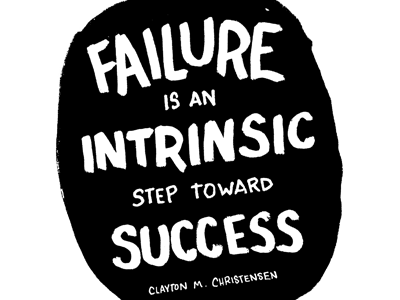
[note: this article first appeared as part of the How to be a Good Writer series on the C.P. White Media Blog.]
Unless you have tried and failed at something, you might not get it. If you’ve never stood your ground even once and told people exactly what you’re thinking, you probably can’t relate to what I’m about to say. If you’ve never tried to create something truly personal, and then taken the huge risk of allowing people to see it, read it, experience it…then you can’t know how it feels. If you can’t look yourself in the mirror and say, “I have something to say,” and mean it, well, you probably don’t know what I’m talking about.
I’m talking about putting yourself out there; in this case as a writer. It might seem difficult to write a book, especially for those who never have, and it is. But it’s even more difficult to finish it and let it go. Out into the wild. Where people are free to love it or hate it. But I gotta tell you: it’s worth the risk. It is totally worth the risk.
Aaron Patterson and I released Airel a couple of springs ago. And then we re-released it last November, with a few improvements. And we have more improvements in store. That first release was the result of about a year’s worth of work. Yep. That much. and like I said, work on that series is ongoing. And as hard as the writing and editing and revising process sometimes is, it doesn’t compare to how difficult it can be emotionally to publish the Work—and allow people into what amounts to a very private inner sanctum: the imagination of the author.
It’s funny, too. I thought over time as I published more stories that it would be easier. But I still get nervous about releasing my work, whether it’s Airel or one of the many other things I’ve published. As I read through the comments and look at the reviews that are coming in on the Airel saga, I’m actually stunned. It’s crazy. And I have to take this moment to thank you, the fans, for everything: buying my writing, leaving awesomely honest reviews on Amazon, and most importantly lending me the support I need to continue writing. I could not do this without my admittedly modest (so far) collection of fans, so thank you. Here’s to more awesomeness going forward. And here’s to you getting your work out there, getting yourself out there. It’s big. And it’s worth it.
 About Chris White:
About Chris White:
You know what they say—that behind every great man is an unstoppable rebel force—and it’s true. Like Moriarty was to Holmes, C.P. White is the reversed polarity doppelganger behind it all. Author C.P. White blogs about weirdness on the C.P. White Media Blog and spins dark tales, psychological thrillers that you’ll want to read with the lights on. Author Chris White works in the front office writing romantic YA paranormal fiction with Aaron Patterson, collaborates with illustrator Joey Zavaleta on the Great Jammy Adventure children’s books, and even serves as editor to award-winning authors. Learn more at www.cpwhitemedia.com.

[note: this article first appeared as part of the How to be a Good Writer series on the C.P. White Media Blog.]
Unless you have tried and failed at something, you might not get it. If you’ve never stood your ground even once and told people exactly what you’re thinking, you probably can’t relate to what I’m about to say. If you’ve never tried to create something truly personal, and then taken the huge risk of allowing people to see it, read it, experience it…then you can’t know how it feels. If you can’t look yourself in the mirror and say, “I have something to say,” and mean it, well, you probably don’t know what I’m talking about.
I’m talking about putting yourself out there; in this case as a writer. It might seem difficult to write a book, especially for those who never have, and it is. But it’s even more difficult to finish it and let it go. Out into the wild. Where people are free to love it or hate it. But I gotta tell you: it’s worth the risk. It is totally worth the risk.
Aaron Patterson and I released Airel a couple of springs ago. And then we re-released it last November, with a few improvements. And we have more improvements in store. That first release was the result of about a year’s worth of work. Yep. That much. and like I said, work on that series is ongoing. And as hard as the writing and editing and revising process sometimes is, it doesn’t compare to how difficult it can be emotionally to publish the Work—and allow people into what amounts to a very private inner sanctum: the imagination of the author.
It’s funny, too. I thought over time as I published more stories that it would be easier. But I still get nervous about releasing my work, whether it’s Airel or one of the many other things I’ve published. As I read through the comments and look at the reviews that are coming in on the Airel saga, I’m actually stunned. It’s crazy. And I have to take this moment to thank you, the fans, for everything: buying my writing, leaving awesomely honest reviews on Amazon, and most importantly lending me the support I need to continue writing. I could not do this without my admittedly modest (so far) collection of fans, so thank you. Here’s to more awesomeness going forward. And here’s to you getting your work out there, getting yourself out there. It’s big. And it’s worth it.
 About Chris White:
About Chris White:You know what they say—that behind every great man is an unstoppable rebel force—and it’s true. Like Moriarty was to Holmes, C.P. White is the reversed polarity doppelganger behind it all. Author C.P. White blogs about weirdness on the C.P. White Media Blog and spins dark tales, psychological thrillers that you’ll want to read with the lights on. Author Chris White works in the front office writing romantic YA paranormal fiction with Aaron Patterson, collaborates with illustrator Joey Zavaleta on the Great Jammy Adventure children’s books, and even serves as editor to award-winning authors. Learn more at www.cpwhitemedia.com.
Published on April 28, 2013 14:59
April 21, 2013
How to submit for publication (or do it yourself, thanks very much)
How to submit for publication (or do it yourself, thanks very much)

[note: this article first appeared as part of the How to be a Good Writer series on the C.P. White Media Blog.]
How to submit for publication: it’s the question you probably wonder about when you turn out the lights and you’re trying to get to sleep. But it’s not one very many authors are asking out loud these days, and for good reason. It’s because of self-publishing. It’s because of technology. We might assume the world has changed for good. But publishers aren’t going anywhere. After all, Sony Music weathered the rise of Napster and iTunes; Harper Collins and Penguin aren’t just going to roll over and die. So then… you might want to know, after all, “How do I submit for publication?”
My best answer to the question? Don’t. You’re going to work your keester off whether you’re independent or traditionally published. The rate of pay, though, is wildly different. I’ve said it before: You don’t need a publisher. Not these days. And not, certainly, for what you’ll get out of making a deal with the Devil, which amounts to about 15% on the high end, and that’s if Beelzebub likes you. Or if you drive a harder bargain than Faust. See, publishers used to be able to justify their gargantuan takes. After all, there was the cost of print, the risk they were taking, the rent on their palatial Manhattan offices; the whole enterprise of publishing to begin with. Plus they were the gatekeepers of the industry. Without a competitive alternative, monopolies tend to do as they see fit, and to hell not only with the consequences but with everyone else as well.
These days though, a publisher has pretty much only one purpose: to lend legitimacy to the work. The way they do that is through a heavy dose of self-interest: They want to hold the works bearing their imprimatur to a higher standard. But if you’re enough of a self-starter, legitimacy can be lent to the work by its success, and you’ll hold yourself to a high standard all by your lonesome. In other words, you’ll have a more urgent need for a great editor than you’ll have for any kind of publisher. And, considering the minuscule amount of practical good it’ll do you to sign with a publisher, you just might be better off establishing your own team that includes a literary agent, a social media expert, a publicist, an editor, a graphic artist, and a marketing genius, because guess what: even if you’re signed, you still have to learn how to do all that stuff anyway. And, signed or not, you’ll be doing it yourself, and on your own dime.
So, if you’ve heard all this and you’re still keen on giving away 85% of your royalties to a big New York company just so they can put their name on the flyleaf, read on.
The truth is, even Yours Truly has submitted work to be published, and received the letter of rejection to prove it. It’s a rite of passage. Though I’ve made a great case for staying independent here, there are indeed some times when a publisher can be useful, especially if you can negotiate a workable deal. After all, not all of them take 85% of your gross receipts. They might even help get your career going, I suppose. I can only speculate about that, because I’m quite fiercely independent.
So what’s the best way to submit your work to a publisher? You don’t want to waste your own time, and if you want the publisher to honestly consider your work on its merits, you sure as hell don’t want to waste his time. So: As the former acquisitions editor for a small local innovative publisher, I can tell you I never looked forward to sitting down and attempting to chew my way through a submission (elementary grammar and spelling completely aside) that had been written by someone who hadn’t yet made profound discoveries about himself personally, and applied it to his writing. But on with the Obvious Rules.
Obvious Rule #1: Submit according to guidelines. If you can’t be bothered to read half a Web page on how the publisher wants to receive your work for consideration, then why should a publisher be bothered to do anything with your submission but pitch it into the circular file? Usually, publishers ask for Times New Roman 12pt font, double line spacing, and that the work be sent as .doc or .docx files—you know, impossible draconian stuff—but not always. Look at it like a job interview: if you’re incapable of meeting the minimum stated requirements, why even try? Move on to something for which you’re qualified.
Obvious Rule #2: Submit edited work, not a rough draft. Okay. Submissions can also be like a first date. You want to show up finely groomed, with a high polish and a pleasant aroma. It boggles the mind that so many authors submit work that lives in a cardboard box and smells like pee. Crude, but the comparison is apt. If you have a good story idea and you know it, but you’re having trouble with spelling and sentence structure because of public school, don’t submit your work until it’s showered and properly dressed, having been dragged through a course by Edgerton and Bickhamand Klinkenborg.
Obvious Rule #3: If you find Obvious Rules #’s 1 and 2 too difficult, you’re not a writer and you should make yourself useful in some other industry. If, however, you’re a little hurt but mostly challenged to prove me wrong by fulfilling to the best of your ability Obvious Rules #’s 1 and 2, then congrats. You’re most likely both called and gifted.
Perspective is like a good hard punch in the face. I’ll tell it like this: When I submitted my work I was told that it wasn’t ready. I had been working on it for three years at that point. How did I respond? Well, I got back to work. I used that criticism to grow. And I put another year into it. And now it’s far better than it was. I hope you, too can experience this…when the time is right for you.
There’s a fine line between faith and presumption, and we cross it at our peril. If we’re gifted for a certain thing in life—and we know it—we must tread carefully away from the sense of entitlement. We’re not owed anything. So go forth boldly into the world and write. If you’re indeed made for it, you will break through eventually. Signed with a publisher or no.
 About Chris White:
About Chris White:
You know what they say—that behind every great man is an unstoppable rebel force—and it’s true. Like Moriarty was to Holmes, C.P. White is the reversed polarity doppelganger behind it all. Author C.P. White blogs about weirdness on the C.P. White Media Blog and spins dark tales, psychological thrillers that you’ll want to read with the lights on. Author Chris White works in the front office writing romantic YA paranormal fiction with Aaron Patterson, collaborates with illustrator Joey Zavaleta on the Great Jammy Adventure children’s books, and even serves as editor to award-winning authors. Learn more at www.cpwhitemedia.com.

[note: this article first appeared as part of the How to be a Good Writer series on the C.P. White Media Blog.]
How to submit for publication: it’s the question you probably wonder about when you turn out the lights and you’re trying to get to sleep. But it’s not one very many authors are asking out loud these days, and for good reason. It’s because of self-publishing. It’s because of technology. We might assume the world has changed for good. But publishers aren’t going anywhere. After all, Sony Music weathered the rise of Napster and iTunes; Harper Collins and Penguin aren’t just going to roll over and die. So then… you might want to know, after all, “How do I submit for publication?”
My best answer to the question? Don’t. You’re going to work your keester off whether you’re independent or traditionally published. The rate of pay, though, is wildly different. I’ve said it before: You don’t need a publisher. Not these days. And not, certainly, for what you’ll get out of making a deal with the Devil, which amounts to about 15% on the high end, and that’s if Beelzebub likes you. Or if you drive a harder bargain than Faust. See, publishers used to be able to justify their gargantuan takes. After all, there was the cost of print, the risk they were taking, the rent on their palatial Manhattan offices; the whole enterprise of publishing to begin with. Plus they were the gatekeepers of the industry. Without a competitive alternative, monopolies tend to do as they see fit, and to hell not only with the consequences but with everyone else as well.
These days though, a publisher has pretty much only one purpose: to lend legitimacy to the work. The way they do that is through a heavy dose of self-interest: They want to hold the works bearing their imprimatur to a higher standard. But if you’re enough of a self-starter, legitimacy can be lent to the work by its success, and you’ll hold yourself to a high standard all by your lonesome. In other words, you’ll have a more urgent need for a great editor than you’ll have for any kind of publisher. And, considering the minuscule amount of practical good it’ll do you to sign with a publisher, you just might be better off establishing your own team that includes a literary agent, a social media expert, a publicist, an editor, a graphic artist, and a marketing genius, because guess what: even if you’re signed, you still have to learn how to do all that stuff anyway. And, signed or not, you’ll be doing it yourself, and on your own dime.
So, if you’ve heard all this and you’re still keen on giving away 85% of your royalties to a big New York company just so they can put their name on the flyleaf, read on.
The truth is, even Yours Truly has submitted work to be published, and received the letter of rejection to prove it. It’s a rite of passage. Though I’ve made a great case for staying independent here, there are indeed some times when a publisher can be useful, especially if you can negotiate a workable deal. After all, not all of them take 85% of your gross receipts. They might even help get your career going, I suppose. I can only speculate about that, because I’m quite fiercely independent.
So what’s the best way to submit your work to a publisher? You don’t want to waste your own time, and if you want the publisher to honestly consider your work on its merits, you sure as hell don’t want to waste his time. So: As the former acquisitions editor for a small local innovative publisher, I can tell you I never looked forward to sitting down and attempting to chew my way through a submission (elementary grammar and spelling completely aside) that had been written by someone who hadn’t yet made profound discoveries about himself personally, and applied it to his writing. But on with the Obvious Rules.
Obvious Rule #1: Submit according to guidelines. If you can’t be bothered to read half a Web page on how the publisher wants to receive your work for consideration, then why should a publisher be bothered to do anything with your submission but pitch it into the circular file? Usually, publishers ask for Times New Roman 12pt font, double line spacing, and that the work be sent as .doc or .docx files—you know, impossible draconian stuff—but not always. Look at it like a job interview: if you’re incapable of meeting the minimum stated requirements, why even try? Move on to something for which you’re qualified.
Obvious Rule #2: Submit edited work, not a rough draft. Okay. Submissions can also be like a first date. You want to show up finely groomed, with a high polish and a pleasant aroma. It boggles the mind that so many authors submit work that lives in a cardboard box and smells like pee. Crude, but the comparison is apt. If you have a good story idea and you know it, but you’re having trouble with spelling and sentence structure because of public school, don’t submit your work until it’s showered and properly dressed, having been dragged through a course by Edgerton and Bickhamand Klinkenborg.
Obvious Rule #3: If you find Obvious Rules #’s 1 and 2 too difficult, you’re not a writer and you should make yourself useful in some other industry. If, however, you’re a little hurt but mostly challenged to prove me wrong by fulfilling to the best of your ability Obvious Rules #’s 1 and 2, then congrats. You’re most likely both called and gifted.
Perspective is like a good hard punch in the face. I’ll tell it like this: When I submitted my work I was told that it wasn’t ready. I had been working on it for three years at that point. How did I respond? Well, I got back to work. I used that criticism to grow. And I put another year into it. And now it’s far better than it was. I hope you, too can experience this…when the time is right for you.
There’s a fine line between faith and presumption, and we cross it at our peril. If we’re gifted for a certain thing in life—and we know it—we must tread carefully away from the sense of entitlement. We’re not owed anything. So go forth boldly into the world and write. If you’re indeed made for it, you will break through eventually. Signed with a publisher or no.
 About Chris White:
About Chris White:You know what they say—that behind every great man is an unstoppable rebel force—and it’s true. Like Moriarty was to Holmes, C.P. White is the reversed polarity doppelganger behind it all. Author C.P. White blogs about weirdness on the C.P. White Media Blog and spins dark tales, psychological thrillers that you’ll want to read with the lights on. Author Chris White works in the front office writing romantic YA paranormal fiction with Aaron Patterson, collaborates with illustrator Joey Zavaleta on the Great Jammy Adventure children’s books, and even serves as editor to award-winning authors. Learn more at www.cpwhitemedia.com.
Published on April 21, 2013 14:57
April 14, 2013
Plot, and how awesome it is, especially in stories (duh)
Plot, and how awesome it is, especially in stories (duh)

[note: this article first appeared as part of the How to be a Good Writer series on the C.P. White Media Blog.]
I want to feature plot in this post. I’ve posted other things about this subject (Archetypes), and that’s because it bears study. A good writer is one who understands at least the basic elements of plot. For me, plot = characters in a lot of ways. But for now, plot.
A good story has a skeleton in good order. If you break out the major events in any well-written story, you can build an outline around them (whether the author intended you to do so or not). Sometimes we get a look at it in disjunct ways, a la LOST or The Prestige, which are great stories that keep us guessing—but they’re organized quite well in the final analysis. In other words, whatever happens in the storyline has a reason for happening (the fictional past) and a consequence as well (the fictional future). That’s what I mean by a skeleton in good order.
Good stories have certain elements that are universal, too. It’s been that way since the dawn of time. If a crowd can relate to part of the story, they buy in. That’s what Heathcock bangs on about, and with good reason. It’s called empathy, and you should cultivate the hell out of it. If your book has it, people buy it. That’s the goal here, folks, and it doesn’t require selling out or ignoring/forgetting your principles, contrary to popular belief.
Take a look at any Sherlock Holmes story. I still stand in awe of Sir Arthur Conan Doyle’s knack for this. I always wonder which part of the story he wrote first; as if he wrote it inside out and backwards, because how can anyone write such mysteries? It’s crazy good writing, with lots of layers, lots of interdependencies; like a combination lock on a safe.
A good plot has lots of layers, interdependent interactions between the characters and the story—because really, the characters are the story. And ideally, as we read, we shouldn’t be able to notice the plot happening. It should feel just like life; like we’re voyeuristically observing the characters moving through their virtual world. In other words, a good plot shouldn’t be noticeably fictional. You’ve gotta have real and believable characters. In other words, they’re flawed. They have issues. And those issues, which go hand-in-hand with a good plot, are compounded by the issues that are created by that plot.
Bills are hard to pay in real life, for example. People get divorced and their kids pay the price in one way or another for the rest of their lives. Parents raise kids that become psychopathic in spite of their best efforts to the contrary. Young people get shipped off to combat and come back changed.If they come back. Accidents happen. Factions within families grow like a malignancy. And still the world turns. What I’m saying is that you don’t have to have some inexplicable time travel event or some impossible meteor hurtling toward earth in order to write a good story, or even tell one. You just need something for the reader to hold onto. And arguably, the closer to home it hits (depending upon a lot of other variables) the more people will empathize and the more books you’ll sell. And that’s the goal, if you’re making a living as a writer. And ironically, the more successful you become, there’s a danger of being more insulated from good material for inspiration.
I think that’s one reason why some writers at the beginning of their careers can produce better work (in the sense of being closer to the ground) than those who are a commercial success: they draw from real poignant conflicts through which they have had to live. that’s not to say Stephen King is an idiot. But Jane Austen was never “discovered” in her lifetime, and her work is delicious. Perhaps as a result, who knows. Real people live real lives that are marked and shaped by conflict, and they will be more apt to enjoy reading stories that have an air of familiarity, even if the setting is exotic or fantastic. We all want fiction to feel like the truth at its deepest levels. Remember V for Vendetta,where we heard the line, “writers use lies to tell the truth.” Fabulous.
 About Chris White:
About Chris White:You know what they say—that behind every great man is an unstoppable rebel force—and it’s true. Like Moriarty was to Holmes, C.P. White is the reversed polarity doppelganger behind it all. Author C.P. White blogs about weirdness on the C.P. White Media Blog and spins dark tales, psychological thrillers that you’ll want to read with the lights on. Author Chris White works in the front office writing romantic YA paranormal fiction with Aaron Patterson, collaborates with illustrator Joey Zavaleta on the Great Jammy Adventure children’s books, and even serves as editor to award-winning authors. Learn more at www.cpwhitemedia.com.
Published on April 14, 2013 16:00
April 7, 2013
Writing a story with a freakin purpose
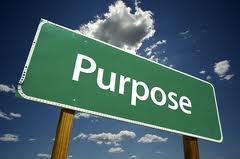
Writing a story with a freakin’ purpose
[note: this article first appeared as part of the How to be a Good Writer series on the C.P. White Media Blog.]
Good writing has certain elements that cause it to be compelling, realistic, successful. And savvy authors wield these elements like a skilled craftsman uses his tools. I'm talking about good fiction. Today we're going beyond the nuts-and-bolts talk, beyond subject-verb agreement, tense, and even the difference between present participle and gerunds (which is extremely important stuff), and we're dealing with high-level, meta-picture kinds of things. Following are a few things Good Writers know.
Disasters: Every scene must end with some kind of disaster for the protagonist. More importantly, when it does not, the story is over. Why? Because the thing that drives Story is conflict. Coincidentally, that's the same thing that keeps readers turning pages. And it's the same reason reality TV has been so successful. Why do you think Survivor was such a hit? And why do you think The Office, with its truly cringe-worthy moments, kept people enthralled for so long? You're right; it's because everybody likes a good train wreck. Which explains NASCAR, mostly.
I suppose I should mention here a little about consequence. Truth is indeed stranger than fiction, and if you look to life for symmetry in cause and effect, you'll rarely find it. Evil prospers and good often suffers. Cf. the books of Job and Ecclesiastes. In the best fiction, I think authors are hypersensitive to all the potentialities of the scenes they're writing and how they want them to play out in the lives of their characters. The best authors just flat out notice things, and all the time. Read Klinkenborg for more on noticing.
Just remember, too, that when you're writing a scene, it won't necessarily feel natural to keep your hero from the One Thing (the Story Goal) she's striving toward. But you must be cruel. And realistic too, and that goes for all you scifi and fantasy nerds out there as much as it goes for all you family saga bow tie-wearing spendthrifts, because no matter where, people are people, whether it's just outside of Alpha Centauri or somewhere in Yorkshire. Yes, people will be total jerks—or completely selfless (rarely)—to each other no matter where they are. And that means there'll be arguments. Sometimes, those arguments are big enough to produce a story, which segues nicely into my next point.
Story-Worthy Problem: This is much like the age-old Meaning of Life question, in that your Story must have a reason to exist if it's going to be at all legitimate. For example, in The Lord of the Rings, the story-worthy problem is that the ring of power is in the Shire, and further that something must be done about it. Finding out what makes one turn the page, again and again. In Lost, the story-worthy problem is that the little band of strangers has been cut off from the world by having crashed on an island in a plane, and further that everyone wants to know how to fix it. In any Sherlock Holmes story, the story-worthy problem is usually that something inexplicable has occurred, and further that at least one of the characters is desperate for a solution.
Note that in the paragraph above, I have italicized the second half of several if-then statements, if you will. There's a reason for this. In my mind, there's a cause and effect relationship between the story-worthy problem and what precedes it. See, all great stories start off showing the protag at rest, at peace, at least reasonably. Then something happens, and that produces ultimatum, which is a lot like real life. That something that happens is the Inciting Incident, and without it, you've got no impetus, no motive, and the story is dead on the slab, having not even gotten to the point where a story worthy problem can surface. So I think the Inciting Incident and the Story-Worthy Problem depend on each other. One of them does come first, and produces the other, but if they stand alone they lose context, and therefore most of their power.
Story Goal: While we're talking high level Story here, it's worth mentioning that there must be a point to it all. some kind of resolution, even if dissonant. If there's not, your little tale exists in a vacuum, which is impossible, at least for things that live and thrive. If there's a working part of a good story that breaks the calm (Inciting Incident), and another working part that provides motive (Story-Worthy Problem) even through every kind of setback (Disaster), then there must be a reason why the protag endures to the end. A goal, then. One worthy of the story you're telling.
For Frodo, it was to return Middle Earth to a state of peace and rest. For Neo, the goal was to take down the Matrix. For Jean Valjean, it was to discover, no matter how much it cost him personally, true justice.
When the goal is reached, the story has climaxed. All that's left is the wrapup. And that's optional, especially nowadays, with everything being a saga or a series. Drag things out as long as you like. Just remember to season it liberally with conflict and consequence, deglaze with hope, and garnish with at least a little romance.
Scene goal: I've got to set this up a little here. If you've read this series for very long, you know at least a little about the difference between scene and sequel. Scenes are mostly dialogue and action, sequels are mostly narrative. Sequels don't need an inherent goal; they're just telling a bit of backstory or developing a character (when I use the word "developing," it's in the sense of bringing an image into its fullness on film). Scenes, though, should have a goal.
Scene Goals are quite different from Story Goals, because they're never fully realized for the protag. If your hero's goal is to make it to Laramie before the villain does, perhaps he'll accomplish the Laramie bit, but he'll be faced with an ambush by the villain. If the hero's goal is to save the patient's life in the ER, perhaps she does save him, perhaps she doesn't. Or maybe she saves him, but there are unforeseen consequences that will begin to play out in the following scene.
The key to a well-executed Scene Goal is to never give your protag total satisfaction. If you allow that, the story will end and you'll find you need an all new Inciting Incident, Story-Worthy Problem, and so on. So write smartly.
 About Chris White:
About Chris White:You know what they say—that behind every great man is an unstoppable rebel force—and it’s true. Like Moriarty was to Holmes, C.P. White is the reversed polarity doppelganger behind it all. Author C.P. White blogs about weirdness on the C.P. White Media Blog and spins dark tales, psychological thrillers that you’ll want to read with the lights on. Author Chris White works in the front office writing romantic YA paranormal fiction with Aaron Patterson, collaborates with illustrator Joey Zavaleta on the Great Jammy Adventure children’s books, and even serves as editor to award-winning authors. Learn more at www.cpwhitemedia.com.
Published on April 07, 2013 16:00
March 18, 2013
Why Video Marketing Is Important To Any Business
OMB I'm so excited to bring in my girl Miranda Anita! She is a WSA (Women Speakers Association) member with me. Miranda and I met in Sept of 2012 at the California Women's Conference. She's a delight to have interview you and I appreciate her sharing her expertise with video marketing for entrepreneurs.
Why Video Marketing Is Important To Any Business
 Video marketing has come a long way in recent years. It is now the fastest growing advertising medium in the world and certainly the most effective. Since the advent of YouTube and other social video sites, we have seen an explosion in video, so much so that YouTube is now the second most searched site on the Internet. This started out as amusing clips and how-to videos but has quickly extended to being the most effective way to connect to people. Video marketing lets your audience see and hear you in ways other advertising just cannot match. You can showcase your products and services to your consumers in the most effective way.With social media now consuming large amounts of people’s spare time, video marketing targets this trend perfectly. You can share your videos in any number of networks to attain the required level of online visibility. Videos for websites can quickly become viral and create huge exposure for your website or product. Another plus is that these videos will generally be online forever. So while there may be a spike in interest or hype at the beginning, a well-created video will still be viewed for years to come. When representing yourself or own product, you must take a professional approach. Video marketing on websites is at an all-time high also. Website video intros and outros are more common than not nowadays and by not having one a business can get left behind. Professional videos increase sales and traffic and can be used as customer support, saving your business valuable time answering customer help and support queries. Of course you want your customer to spend time on your website thus retaining visitors for a longer duration with professionally created impressive motion graphic videos. Customers can also get a great feel for your product or service with online video showcases. The possibilities are endless when it comes to video marketing!Videos enable clients to powerfully communicate their purpose and the solutions they offer by connecting with their target audience. Video marketing is now the number one method of marketing online and using experts enables you to give your business the boost video marketing can offer. Engaging and professional, video professionals can work within your budget to find the perfect solution. Find a provider who offers all-inclusive with all features and benefits all rolled up in one. Ask your video production team if they offer:1. Free Pre-Shot Video List2. Free Tips on How to Look Your Best3. Free Royalty Music4. Free Sound Bites5. No Shipping Costs6. Free Director on Set7. Green Screen Technology8. Teleprompters9. Hired Talent10. 72 hour turn around for post-production delivery.The real questions needs to be can you afford not to do video marketing for your business?
Video marketing has come a long way in recent years. It is now the fastest growing advertising medium in the world and certainly the most effective. Since the advent of YouTube and other social video sites, we have seen an explosion in video, so much so that YouTube is now the second most searched site on the Internet. This started out as amusing clips and how-to videos but has quickly extended to being the most effective way to connect to people. Video marketing lets your audience see and hear you in ways other advertising just cannot match. You can showcase your products and services to your consumers in the most effective way.With social media now consuming large amounts of people’s spare time, video marketing targets this trend perfectly. You can share your videos in any number of networks to attain the required level of online visibility. Videos for websites can quickly become viral and create huge exposure for your website or product. Another plus is that these videos will generally be online forever. So while there may be a spike in interest or hype at the beginning, a well-created video will still be viewed for years to come. When representing yourself or own product, you must take a professional approach. Video marketing on websites is at an all-time high also. Website video intros and outros are more common than not nowadays and by not having one a business can get left behind. Professional videos increase sales and traffic and can be used as customer support, saving your business valuable time answering customer help and support queries. Of course you want your customer to spend time on your website thus retaining visitors for a longer duration with professionally created impressive motion graphic videos. Customers can also get a great feel for your product or service with online video showcases. The possibilities are endless when it comes to video marketing!Videos enable clients to powerfully communicate their purpose and the solutions they offer by connecting with their target audience. Video marketing is now the number one method of marketing online and using experts enables you to give your business the boost video marketing can offer. Engaging and professional, video professionals can work within your budget to find the perfect solution. Find a provider who offers all-inclusive with all features and benefits all rolled up in one. Ask your video production team if they offer:1. Free Pre-Shot Video List2. Free Tips on How to Look Your Best3. Free Royalty Music4. Free Sound Bites5. No Shipping Costs6. Free Director on Set7. Green Screen Technology8. Teleprompters9. Hired Talent10. 72 hour turn around for post-production delivery.The real questions needs to be can you afford not to do video marketing for your business?
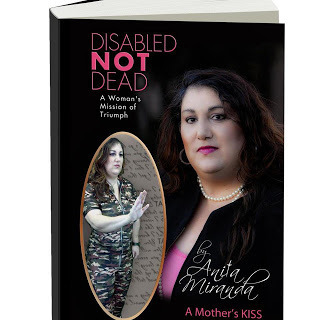 Anita Miranda aka Miranda is a Video Strategist with a Master’s degree in Education and a Bachelor’s degree in Marketing. As a retired Navy Veteran, she provides Red Carpet Academy tips to entrepreneurs who like the “DIY” method or prefer the Red Carpet Production Set. She is the Creative Director of Media PRO Productions and her passion is her philanthropic mission Circle of Helping Hands, Advocating for Veterans, Women, and their Children. You may reach Miranda at 1-877-605-6389 or mediapro@mirandaskiss.com
Anita Miranda aka Miranda is a Video Strategist with a Master’s degree in Education and a Bachelor’s degree in Marketing. As a retired Navy Veteran, she provides Red Carpet Academy tips to entrepreneurs who like the “DIY” method or prefer the Red Carpet Production Set. She is the Creative Director of Media PRO Productions and her passion is her philanthropic mission Circle of Helping Hands, Advocating for Veterans, Women, and their Children. You may reach Miranda at 1-877-605-6389 or mediapro@mirandaskiss.com
Published on March 18, 2013 15:48
March 11, 2013
Changing Lanes - Tricia Dycka
Please welcome my special guest and fellow she-warrior Tricia Dycka. Tricia shares her emotional ah-ha moment about when she realized the path she was on wasn't what the universe had in mind. Changing Lanes - Tricia Dycka

At one time or another in life you hit a brick wall and you have two choices. Continue hitting the brick wall - or change lanes and make a course correction.
A while back, I was feeling restless and stagnant where nothing was moving the way I wanted it to. How did I know I needed to change lanes? I was getting ZERO RESULTS.
One thing I learned was there was a process that we all go through when we finally admit to ourselves that what we are doing just isn’t working. As much time, effort, blood, sweat and tears that may have gone into this venture sometimes you realize that it might just be time to do something different. It could be a simple change or a total overhaul.
When the realization comes that it is time to move on, the onslaught of emotional baggage that comes with it can be staggering. Some common threads are misery, followed by pissed off, then comes the pity party of one and last but not least comes the Warrior mode.
OK, if you are not on the right track, what is your next step? When this last happened to me, I was going toward a complete overhaul of what I thought was my right path which of course it wasn’t and then it led to synchronicity on all levels.
I kept asking questions in my journal, writing things down as they would come to me. Then all the right people were put in my path. Each person came with the same message. People who do not know one another, and will never meet, from all corners of the world. I finally got the message that God/Universe was sending me. My path was about to change irrevocably. And it scared the shit out of me. That is how I knew that this was the path I am meant to be on.
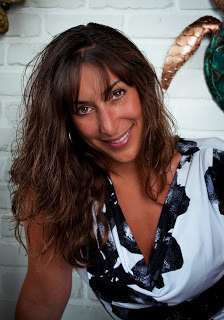 Tricia Dycka is an intuitive healer, Reiki Master, life coach, bestselling author, teacher, speaker and enthusiast. She works with women entrepreneurs to embrace themselves and release blocks that are holding them back so they can live their dreams. She helps women look fear in the eye and continue forward. Tricia uses her skills to help women go from being stuck, to finding the next step or defining a new direction and finally - to freedom. Free to live their lives as they choose.
Tricia Dycka is an intuitive healer, Reiki Master, life coach, bestselling author, teacher, speaker and enthusiast. She works with women entrepreneurs to embrace themselves and release blocks that are holding them back so they can live their dreams. She helps women look fear in the eye and continue forward. Tricia uses her skills to help women go from being stuck, to finding the next step or defining a new direction and finally - to freedom. Free to live their lives as they choose. http://www.triciadycka.com
http://www.facebook.com/triciadyckacoaching
Published on March 11, 2013 06:30
March 9, 2013
Taking a Step Back after being Gut Punched
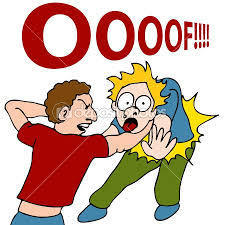
Have you ever been punched in the gut? I have. It hurts. Your breath is gone. Instinctively you lean forward and grab the affected area gasping for your next breath. Then.
When you’ve somewhat recovered you get gut punched again.
Ever felt that?
Metaphorically that’s pretty much describes February 2013 for me.
Sometimes in life when you make big life decisions or when they happen to you sometimes, you do not want to make it a reality. For example, when you move far away you take longer than you normally would unpacking. Or if your grandfather dies and you are in a hurry to get back to your home 2000 miles away so you don’t have to constantly be reminded of it.
If you follow me on Twitter of Facebook then you heard all about the fact February for me was like a social media soap opera. My grandfather died, my family traveled to TN with car problems, we buried my grandfather, I fought with my family, cried with my family, and was reminded that we are all 2 powder kegs shy of a crazy fireworks stand, on the way back from Idaho more car problems. Not to mention, due to their own personal challenges, my biggest client and I decided not to renew our contract.
Lately I find myself absent minded and don’t respond when my husband talks to me, or when I do it’s short and overly hateful. But it’s not just my husband it’s my children too. I don’t want to socialize online or in person. But to add to those issues I’ve been sick for at least 2 weeks with terrible flu like symptoms, sinus infection, then a reaction to my antibiotics.
With all that said I find myself remembering The 4 Agreements. One of those agreements was Always do Your Best.
The number one part of Always doing Your Best is to understand that your best isn’t always the same. External factors, like the death of a loved one, internal factors, like being physically sick, effect the level of what your best is.
Considering all this, I’ve decided to take the month of March off from blogging in addition to pulling back from my other obligations as well. I’m taking this time to focus on grieving, healing, and focusing on my family and my current full time clients.
Until, then I have several amazing guest blogs, from industry leading professionals to keep the embers of interest warm while I’m away.
Thank you so much for your support and understanding while I go through these transitions in my life.
Bri Clark
Social Ghoster Marketing Strategist, Author, Speaker, Social Media/ Platform Consultant
(208)761-0319 belleconsult.com

 Facebook
Facebook
 Twitter
Twitter
 LinkedIn
LinkedIn
 Google Plus
Google Plus
 YouTube
YouTubeSass is Class Blog Ladies, How would you like to have a guaranteed happiness at the end of the day? Welcome to my bedroom.


Published on March 09, 2013 16:00



